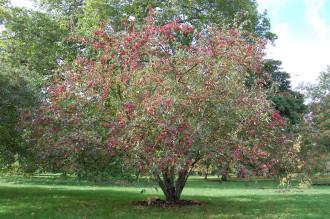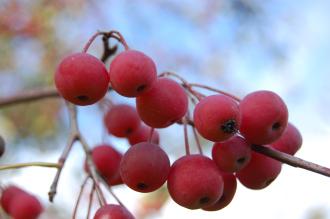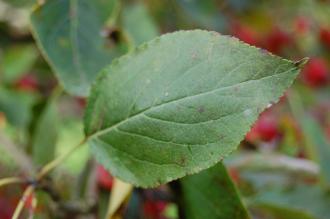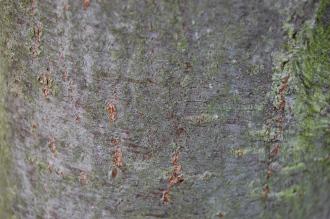
Malus rockii (21/10/13, Kew Gardens, London)
Position: Full sun to partial shade
Flowering period: Late spring to early summer
Soil: Moist, well drained
Eventual Height: 10m
Eventual Spread: 10m
Hardiness: 6a, 6b, 7a, 7b, 8a, 8b, 9a
Family: Rosaceae

Malus rockii Fruit (21/10/13, Kew Gardens, London)
Malus rockii is a deciduous tree with a pendulous, spreading habit. Its mid green leaves are elliptic to ovate with serrulate margins, up to 12cm long and 7cm broad. Its white flowers are up to 3cm across and appear in groups of up to 8. Its red fruit are pomes, up to 15mm across, appear in autumn and persist on the tree during the winter months.
Malus rockii, commonly known as Crabapple or li jiang shan jiang zi, is native to south central China. In its native habitat it grows in open or mixed forest in valley regions.

Malus rockii Leaf (21/10/13, Kew Gardens, London)
The etymological root of the binomial name Malus is the ancient Latin name for the apple tree. Rockii is named after Joseph Rock (1884 – 1962), an Austrian/ American botanist/ explorer.
The landscape architect may find Malus rockii useful as a small tree with attractive spring flowers and winter fruit.
Ecologically, Malus rockii flowers are attractive to pollinating insects. Its fruit are attractive to birds and some mammals.

Malus rockii Bark (21/10/13, Kew Gardens, London)
Malus rockii prefers moist, fertile, well-drained soils. It tolerates most pH of soil.
Malus rockii requires little maintenance.

